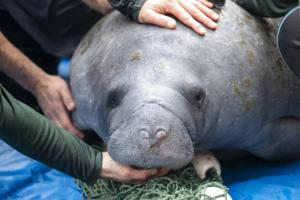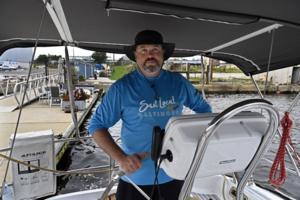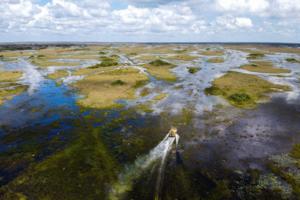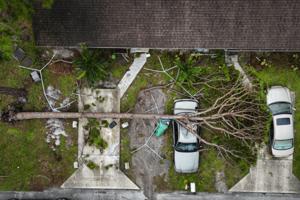Politics
/ArcaMax

Commentary: The Republican budget bill is extreme on immigration, too
The very name of the One Big Beautiful Bill Act is both silly and revealing. The more provisions Congress crams into a single piece of legislation, the harder it is to focus public debate on any one component. So it’s worth asking: What is this big bill trying to hide?
A lot, in my view, but one of the most egregious parts is the spectacular ...Read more

David M. Drucker: Term limits won't fix what's wrong with Congress
Support for imposing term limits on the U.S. Congress is gaining steam, with at least half a dozen state legislatures approving resolutions urging a cap on service in the House of Representatives and the Senate. It stands to reason.
Congress’ job approval ratings are perennially in the tank, and a fresh Quinnipiac University poll reveals more...Read more

Commentary: Choosing war over diplomacy makes for more dangerous times ahead
The world is getting more dangerous. Trust in diplomacy has been deeply undermined, making greater reliance on military might inevitable. Meanwhile, America’s leaders are more focused on declaring war at home than deterring it abroad.
The one positive thing I thought we could count on from Donald Trump’s second administration was his ...Read more

Editorial: Is centrism in the Democratic Party dead? Let's hope not
An interesting question has emerged after socialist Zohran Mamdani’s primary triumph in the race for New York City mayor.
Is the primary electorate simply unreceptive to centrist points of view? In that case, Democrats nationally are likely to spend a good long while in the political wilderness.
Or, is this high-profile loss, and others of ...Read more

Andreas Kluth: Did the US obliterate Iran's nuclear program? We just don't know
Let’s see: Did the United States ever let good storytelling interfere with rigorous intelligence gathering in making the case for war in the Middle East? Well, there was the prologue to that war in 2003, when the White House told the country, the world and itself that Iraq had weapons of mass destruction, which turned out not to exist. Surely,...Read more

Editorial: Deportations alone can't fix US immigration problems
Underlying the demonstrations and street clashes of recent weeks is a dysfunctional system of immigration enforcement that needs to be fixed. With a bit of goodwill — from both the president and his opponents — that shouldn’t be too much to ask.
To much public outcry, federal immigration authorities have been detaining unauthorized ...Read more

Patricia Lopez: The 'deport them all' playbook doesn't match public opinion
For more than a decade, President Donald Trump has been scapegoating immigrants, decrying them as criminals and vermin and vowing to deport them by the millions.
The American people, by and large, aren’t buying it, nor should they.
A new Pew Charitable Trust poll shows that 65% of Americans support having undocumented immigrants stay legally...Read more

Editorial: Unionizing Uber and Lyft drivers may speed up their robotic replacement
Earlier this week, Tesla unveiled a small fleet of robotaxis in Austin, marking the first time the EV powerhouse’s driverless vehicles transported paying passengers. For now, Elon Musk’s company is charging a flat fee under $5 for rides.
We can’t imagine this price tag will stick around forever, but it establishes a competitively low ...Read more

Andreas Kluth: Does it matter whether America's Iran strike was lawful?
Historians will judge the massive U.S. strikes on Iran’s nuclear facilities by trying to answer two questions, which ultimately become inseparable. Was the intervention wise? And was it legitimate?
It’s far too early to assess the wisdom of Operation Midnight Hammer — that is, whether it will make the world safer. Stunning as its ...Read more

Commentary: Farewell to the US as the world's top science nation
When I asked John Savage, the retired co-founder of the Department of Computer Science at Brown University, what the essential ingredient in research is, he responded with one word: “Passion.”
It is passion that keeps scientists going, dead end after dead end, until there is a breakthrough. It is passion that keeps them at the bench or ...Read more

Editorial: Exiling refugees -- Supreme Court once more gives Trump wide power on deportations
It is cruel and nonsensical to deport people, not back to their countries of origin, but to third countries without proper notice or any way to appeal. But that’s what the Trump administration wants to do and that’s what the Supreme Court this week wrongly OKed in a one-paragraph order.
One of these cases involved a group of men the ...Read more

Commentary: On trans issues, we need more nuance
Here’s a quick quiz: Who made this comment about the U.S. military?
“The soldier on the battlefield deserves to have and must have utmost confidence in his fellow soldiers. They must eat together, sleep together, and all too frequently die together. There can be no friction in their everyday living that might bring on failure in battle.” ...Read more

Editorial: Manatees' defenders score a major court victory. But hundreds are still dying
Yes, Florida has to follow the Endangered Species Act when it comes to protecting its beloved, highly imperiled manatees — at least for now, a federal appeals court has ruled.
Reading up on this case is a down-the-rabbit-hole experience that leaves casual observers wondering “What the heck is going on here?” For most Floridians, it’s a ...Read more

Editorial: Free speech can be rough sailing
Like the needle on a compass, politics is polarized. But there should be a difference between finding your way in rough seas and surviving our nation’s stormy politics.
Bobby LaPin, the owner of a Baltimore-based charter boat company, discovered just how stormy the latter has become. His crime? Simply questioning on social media whether the ...Read more

Michael Hiltzik: Contradicting RFK Jr., CDC says the COVID vaccine protects pregnant women, babies, and children
Here's how one of the well-laid plans of Health and Human Services Secretary Robert F. Kennedy Jr. went blooey.
Earlier this month, Kennedy dismantled the all-important Advisory Committee on Immunization Practices of the Centers for Disease Control and Prevention, and remade it into the spearhead for his anti-vaccination campaigns.
The ...Read more

Commentary: Northwestern needs better leadership to fight back against Trump
On June 10, the Northwestern University community received an alarming email from university President Michael Schill and his team. The email stated that “rising costs related to compliance requirements, health care expenses, litigation, labor contracts, employee benefits, and other forces have put an increasing strain on Northwestern’s ...Read more

Jackie Calmes: The Supreme Court's deference to Trump is astounding
The nation's federal judges — including appointees of presidents of both parties, Donald Trump's among them — have been the bulwark against Trump's reign of lawlessness on deportations, spending, federal appointments and more. Repeatedly, lower courts have been standing up for the Constitution and federal law, trying to constrain a president...Read more

Mary Ellen Klas: 'Alligator Alcatraz' is a dystopian pipe dream, not a plan
Florida Attorney General James Uthmeier has been getting a lot of attention this week for erecting an ICE deportation camp on an abandoned airstrip in the heart of the Florida Everglades and calling it “Alligator Alcatraz.” In a glossy video, he suggests that the flood-prone wetland is perfect for housing detained immigrants in the heat of ...Read more

Commentary: Heat domes, wildfires, floods and drought. Where's the outrage?
As I write this, the temperature is climbing past 100 degrees Fahrenheit in the mid-Atlantic states, and 170 million Americans are under warnings about a dangerous combination of intense heat and humidity. Is this latest weather extreme linked to global warming? Of course it is, as has been the case with record-setting floods, extreme hurricanes...Read more

Commentary: Twisting the truth: Extreme weather and the climate narrative
As America braces for another storm season, only the media storms are more predictable than upcoming hurricanes and tornadoes. Often before the dust settles after natural disasters, headlines warn that gusts of wind and funnel clouds are proof the Earth is boiling.
Politicians run to blame carbon emissions while their supporters flood social ...Read more























































